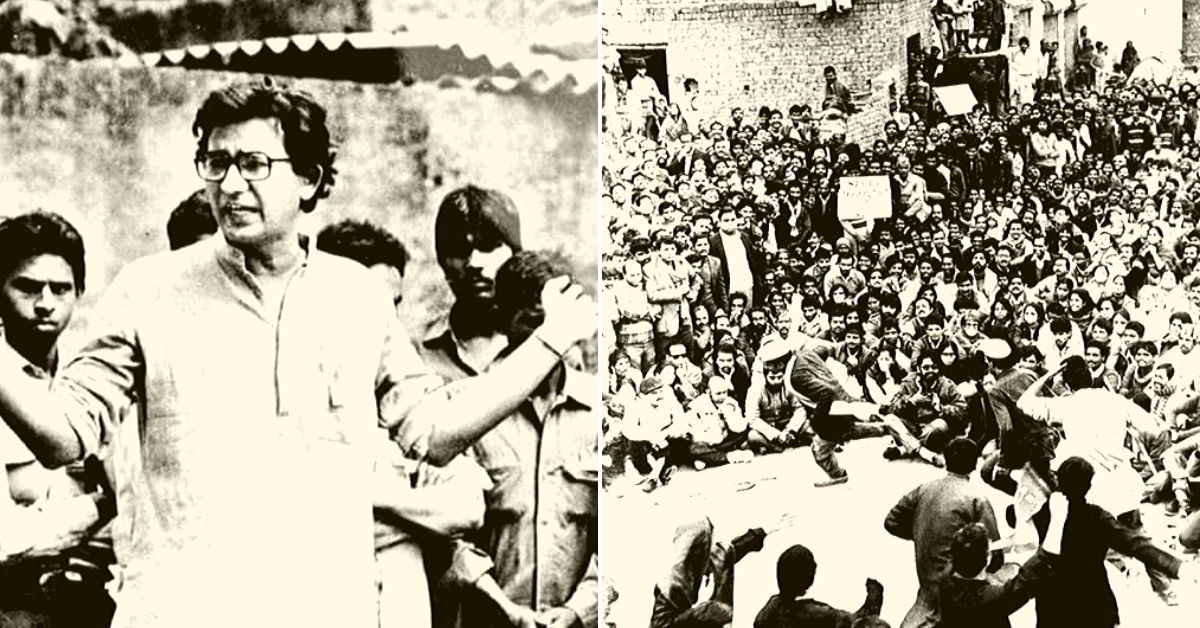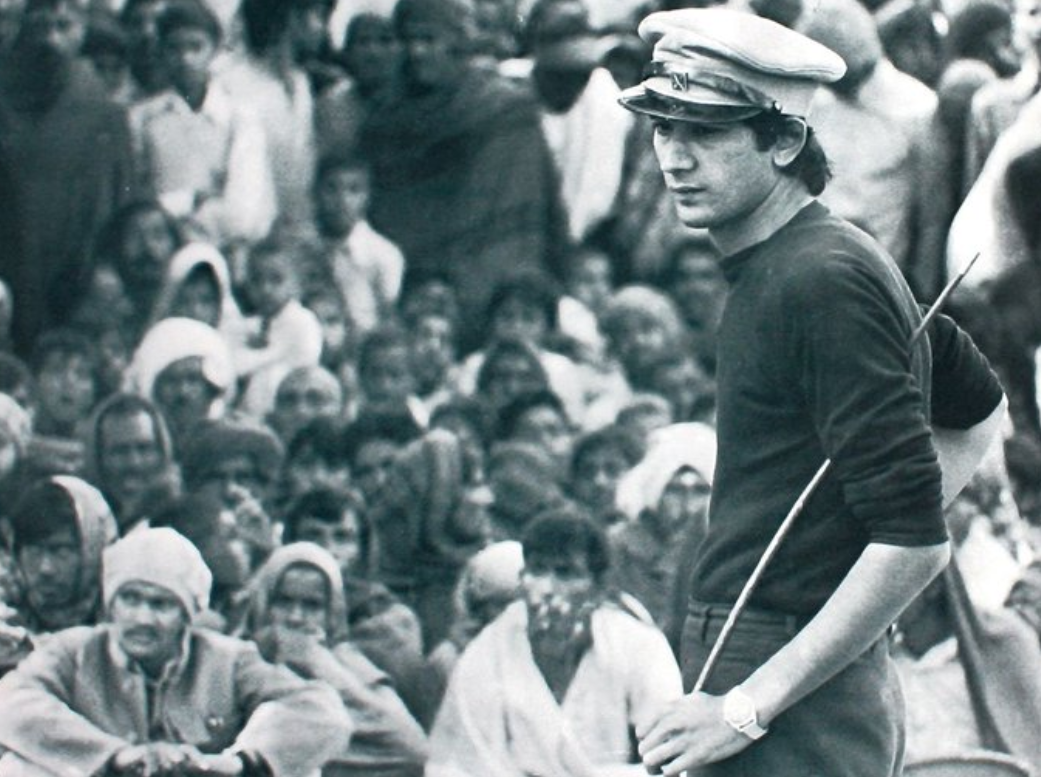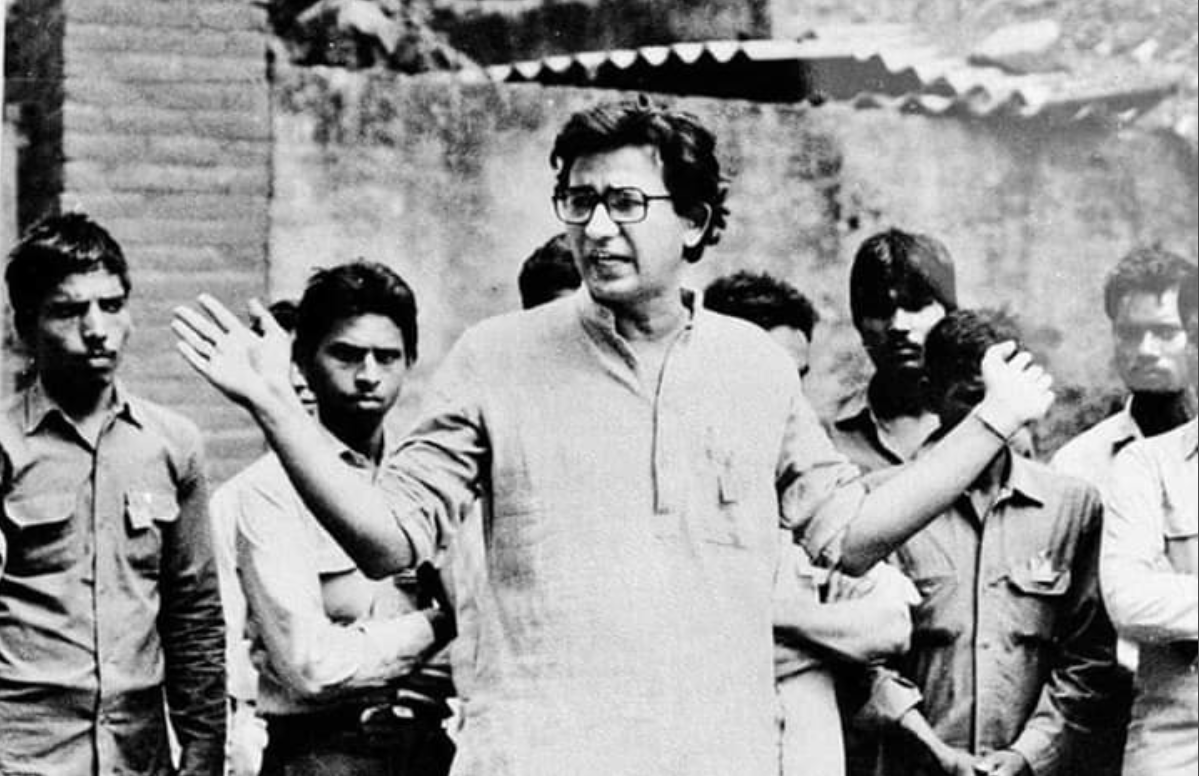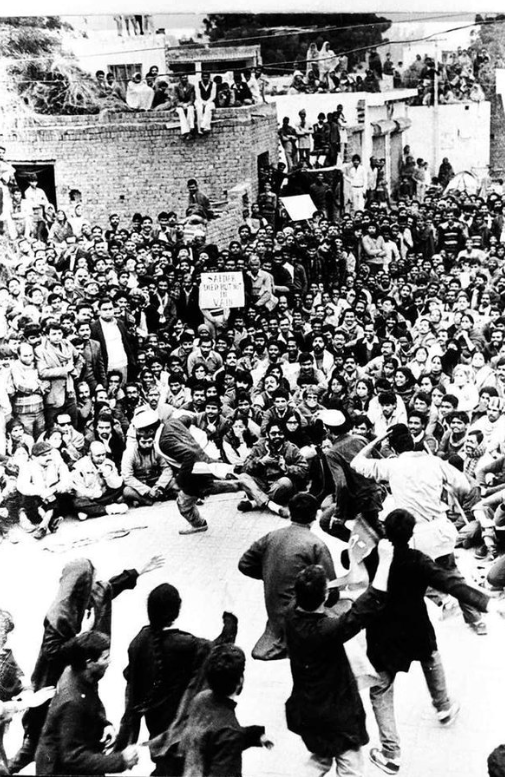Street Theatre That Changed India: This Man Gave His Life To Stand Up For What’s Right
Fearless and fiery, Safdar Hashmi showed true compassion for the most vulnerable living among us. And lost his life for it. #Tribute #Legend

On 1 January 1989, the indefatigable Safdar Hashmi led members of the street theatre group, Jan Natya Manch (Janam) to stage a play called Halla Bol (Raise Your Voice) at the Ambedkar Park in Jhandapur, near Delhi.
Organised by the Kisan Sabha and Centre of Indian Trade Unions (CITU), these plays often focussed on an economic and political system designed to crush ordinary labourers with poor wages and working conditions.
During the performance of this play, the theatre group were viciously attacked by goons associated with a political party led by Mukesh Sharma, who was contesting the upcoming municipal elections as an Independent candidate against Ramanand Jha, a trade union leader.
During this vicious attack, Hashmi suffered grievous injuries and tragically succumbed to them the following day.
Just two days later, however, Hashmi’s wife, Moloyashree and the rest of Janam, finished the play in Jhandapur, paying tribute to a man who forged a path of non-violent resistance against the establishment to spread messages of equality, religious tolerance, inclusiveness, women’s empowerment and workers rights.
Safdar Hashmi—Trading a Cushioned life to Work for the Deprived
It was the ultimate tribute to a man, who could have easily enjoyed the comforts life had offered, but instead chose to live in the dust surrounded by the most deprived sections of the Indian society. Through his craft, he brought theatre to the masses in a language they understood best.
Born on 12 April 1954 in Delhi, Hashmi spent the early parts of his life in relative comfort. He graduated from the prestigious St Stephen’s College in Delhi with a degree in English Literature followed by a Master’s degree in the same subject from Delhi University.
If Hashmi wanted, he could have quite easily forged a career in government service or gone abroad for further studies, but chose otherwise. During his time in college, he became intensely political and joined the Students Federation of India, the progressive Indian People’s Theatre Association and subsequently co-founded Janam.
In the early 1970s, his plays like ‘Kursi, Kursi, Chair, Chair’ spoke directly to the people about then Prime Minister Indira Gandhi’s thirst for power following accusations of election rigging.
Hasmi’s troupe would often perform plays for a mass audience. With the clampdown on public gatherings following the imposition of Emergency, Hashmi made his way to academia teaching English literature in different universities, while also becoming a member of the Communist Party of India (Marxist). He even had a short stint as a press officer at the West Bengal Information and Cultural Centre in Delhi. But considering the social and political turmoil in the country following Emergency, he felt no choice but to come back to spreading social awareness through street theatre.

But Hashmi’s street theatre wasn’t born in a vacuum. There is a context to it.
“In the late 1970s, it cost about Rs 5,000 to mount a show, set up a large stage, hire lights and sound technicians. It was a lot of money. The organisations that usually gave us space to perform, needed our plays but could not afford them. So Safdar said, ‘If we can’t take big plays to the people, we’ll take small plays’,” writes Sudhanva Deshpande, a storied member of Janam, for Scroll.in.
The plays he wrote and Janam performed were centered on a whole range of issues—Gaon Se Shahar Tak, DTC ki Dhandhli (on inflation), Aurat, Teen Crore (on unemployment), Machine (on violence imposed by the factory owners against their workers) and Hatyare & Apharan Bhaichare Ke (religious facism), among others.
“Janam’s early plays — including Aurat, Hatyare and Machine — became immensely popular for how they dealt with issues of the marginalised communities. Safdar used to write scripts and songs of these plays. He was against the idea of a particular class having hegemony over art or any creative fields. He wanted to take it to the working-class,” writes Danish Raza for the Hindustan Times.
With influences ranging from Sahir Ludhianvi and Faiz Ahmed Faiz to Cuban revolutionaries like Fidel Castro, Hashmi combined the anger of the oppressed with the wisdom of anti-establishment poets.

Taking Theatre to The Masses
For Hashmi, the very world outside was his stage, whether his troupe performed in a mohalla, street corner, villages or a park or across working-class neighbourhoods and factories. These plays were for the ordinary citizen. Prior to his tragic death at the age of 34, Janam had given over 4,000 performances of 24 street plays.
But Hashmi’s legacy lives on.

Janam continues to perform over 200 street plays every year, while the collective Safdar Hashmi Memorial Trust (Sahmat) offers a platform for socially and politically conscious artists. Films have been made on his life, and MF Hussain even sold a painting titled “Tribute to Hashmi” for a $1 million.
Also Read: Sahir Ludhianvi, The Poet of Peace Whose Lyrics Made a Home in People’s Hearts
But the real lesson we can draw from his life is how he showed true compassion for the most vulnerable living among us and fearlessly expressed it without any care for his own life. That’s true commitment.
(Edited by Saiqua Sultan)
Like this story? Or have something to share? Write to us: [email protected], or connect with us on Facebook and Twitter.
This story made me
-
97
-
121
-
89
-
167
Tell Us More
We bring stories straight from the heart of India, to inspire millions and create a wave of impact. Our positive movement is growing bigger everyday, and we would love for you to join it.
Please contribute whatever you can, every little penny helps our team in bringing you more stories that support dreams and spread hope.



















